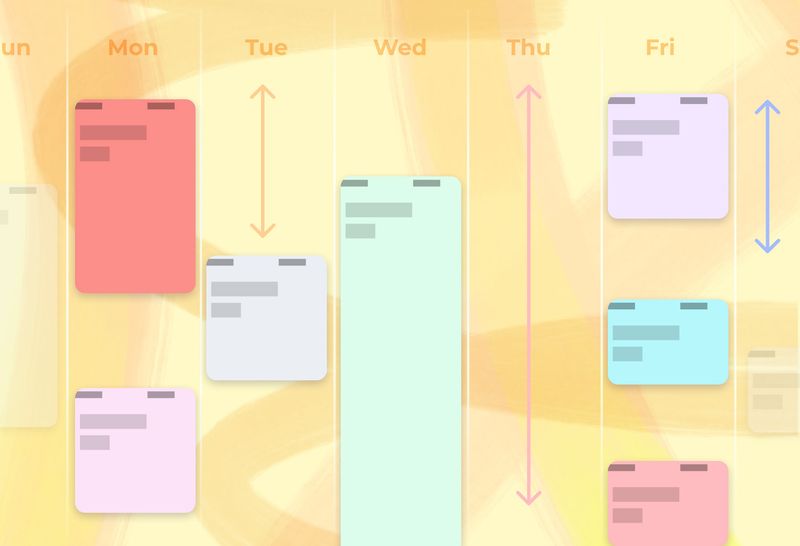In today’s fast-paced world, it’s easy to become overwhelmed and mentally checked out. Whether it’s due to work stress, personal challenges, or simply the weight of everyday life, many find themselves functioning on autopilot. This article explores 15 common behaviors exhibited by those who are mentally exhausted and struggling to stay engaged. From forgetfulness to zoning out, these actions are often subconscious cries for a break. By recognizing these signs in ourselves or others, we can take proactive steps towards mental well-being and re-engagement.
1. Procrastination Overdrive

Procrastination becomes an art form when mental fatigue takes hold. Tasks pile up as the motivation to complete them diminishes. Often, the individual might start a project only to abandon it halfway through, leaving a trail of half-done chores behind. This lack of progress can spiral into further stress, creating a vicious cycle. They may find temporary solace in distractions, such as social media or binge-watching, which only serve to delay the inevitable. This behavior is a clear indicator of an overwhelmed mind struggling to cope with daily demands. Recognizing the need for structure can help break this cycle.
2. Endless Scrolling

While a quick peek at social media might seem harmless, it can turn into an endless scroll when checked out. Hours slip by unnoticed, with the mind seeking an escape from reality. This behavior is a form of digital numbing, where the constant barrage of information becomes a distraction from pressing issues. Such endless scrolling is often accompanied by feelings of guilt and wasted time. The individual is seeking connection or entertainment but ends up feeling more isolated. This habit can signal a need for real-world engagement and genuine human interaction to break the monotony.
3. Emotional Detachment

Amidst a lively gathering, feeling emotionally distant is a common sign of checking out. Conversations become background noise as the mind wanders elsewhere. This detachment can be mistaken for disinterest or aloofness, but it’s often a protective mechanism. The individual might feel overwhelmed by emotions or exhausted from social interactions, seeking refuge in their thoughts. Despite being physically present, their heart and mind are miles away. Understanding this behavior can lead to more empathetic interactions, offering support without judgment. Acknowledging and expressing emotions can help reconnect with the present moment.
4. Frequent Zoning Out

Zoning out becomes a frequent escape for those mentally checked out. During meetings or conversations, their mind drifts to unrelated thoughts, leaving them unaware of their surroundings. This automatic response can lead to missed information and misunderstandings. It’s not a conscious choice but a sign of mental overload. The individual may struggle to concentrate, finding it hard to stay engaged with tasks at hand. Recognizing this pattern can prompt a reassessment of priorities and workload. Incorporating mindfulness practices can be a helpful tool to regain focus and enhance mental clarity in everyday interactions.
5. Chronic Forgetfulness

When mentally exhausted, forgetfulness becomes a frequent companion. Important dates, appointments, or even daily tasks slip through the cracks. The mind’s ability to retain information diminishes as stress takes center stage. This forgetfulness can lead to frustration and anxiety, further exacerbating the feeling of mental overload. It’s a clear sign that the brain is overworked and needs a break to recharge. Strategies like note-taking, reminders, or organizing schedules can mitigate this issue. Understanding the root cause of such memory lapses can be the first step towards improving mental acuity and reducing stress.
6. Minimalistic Communication

Communication becomes minimal when mental fatigue sets in. Responding with one-word answers or grunts, the person may seem distant or uninterested. This behavior is not a reflection of their feelings towards others but rather an indication of their internal struggle. The effort required to engage in meaningful conversation feels insurmountable. They might withdraw from social interactions, preferring silence over expression. Those around them may perceive this as rudeness or disinterest, but it’s often a cry for understanding. Encouraging open dialogue and offering support without pressure can help bridge the communication gap.
7. Avoidance Behavior

Avoidance is a hallmark of mental exhaustion. Whether it’s dodging responsibilities or sidestepping social interactions, the mentally checked-out person gravitates towards paths of least resistance. This behavior stems from a desire to escape stressful situations or confrontations. The thought of facing certain tasks or people becomes overwhelming, leading to physical or emotional withdrawal. While avoidance might offer temporary relief, it often results in increased stress and unfinished business. Addressing the root of the avoidance with self-reflection or professional guidance can pave the way for healthier coping mechanisms.
8. Lack of Creative Spark

Creativity takes a backseat when one is mentally checked out. The once vibrant flow of ideas slows to a trickle, leaving the individual staring at blank canvases or empty pages. Whether it’s in arts, writing, or problem-solving, the creative spark seems extinguished. This lack of inspiration is often accompanied by frustration and self-doubt. It’s essential to recognize that creativity is cyclical and can be nurtured back to life. Taking breaks, seeking new experiences, or simply allowing oneself time to recharge can reignite the creative flame. Understanding this process can reduce the pressure to constantly produce.
9. Mindless Eating

Mindless eating often occurs when the mind is disengaged. The act of consuming food becomes automatic, with little awareness of taste or portion size. The individual might find themselves snacking during activities like watching TV or working, as a form of distraction. This behavior can lead to unhealthy eating habits and weight gain over time. It’s a coping mechanism for stress or emotional discomfort, providing temporary comfort. Recognizing this pattern can lead to more mindful eating practices. Paying attention to hunger cues and savoring meals can transform eating from a mindless activity to a nourishing experience.
10. Sleep Disturbances

Sleep disturbances are common among those who feel mentally drained. Difficulty falling asleep or staying asleep leads to restless nights and fatigue during the day. The mind might race with thoughts, preventing the body from finding rest. This lack of sleep exacerbates feelings of exhaustion and affects daily functioning. Establishing a bedtime routine and creating a calming sleep environment can promote better rest. Limiting screen time and practicing relaxation techniques before bed can aid in easing the transition into slumber. Recognizing the importance of rest is crucial for mental rejuvenation and overall well-being.
11. Isolation Tendencies

Isolation becomes a refuge for the mentally overwhelmed. Seeking solitude, individuals retreat into their own world, avoiding social interactions. This behavior is often misunderstood as introversion, but it’s more about escaping external pressures. The individual might immerse themselves in activities like music or gaming, seeking comfort in familiar routines. While temporary solitude can be restorative, prolonged isolation may lead to loneliness. Encouraging gentle re-engagement with loved ones and activities can provide a balance. Understanding the need for personal space while fostering connections can create a supportive environment for mental recovery.
12. Disinterest in Hobbies

Hobbies lose their charm when mental fatigue sets in. Activities that once brought joy and fulfillment become chores. This disinterest is not a lack of passion but a sign that the mind is overloaded. The individual might find it hard to engage in leisure activities, feeling drained even at the thought of starting. This withdrawal from hobbies is a call for rest and renewal. Giving oneself permission to take breaks and explore new interests can reignite enthusiasm. Reapproaching hobbies with a fresh perspective can transform them back into sources of joy and relaxation.
13. Clutter Accumulation

A cluttered space often reflects a cluttered mind. When mentally checked out, the desire to clean or organize diminishes. Piles of paperwork, unwashed dishes, and scattered belongings accumulate, creating a chaotic environment. This physical clutter can mirror internal disarray, adding to the sense of overwhelm. While the mess might feel insurmountable, tackling it in small steps can create a sense of accomplishment. Decluttering can be therapeutic, offering mental clarity and a fresh start. By creating a serene space, one can foster a calming atmosphere that supports mental well-being and focus.
14. Overreliance on Routine

Routines become a crutch when coping with mental fatigue. While routine can provide stability, an overreliance on it leads to stagnation. The individual clings to predictability, avoiding change or spontaneity. This behavior stems from the need for control in the face of overwhelm. Rigid routines can limit growth and creativity, trapping the person in a cycle of monotony. Embracing small changes or trying new activities can break the pattern and introduce variety. Recognizing the balance between routine and flexibility can enhance adaptability and resilience. By welcoming novelty, one can reignite curiosity and engagement.
15. Indecisiveness

Indecisiveness becomes pronounced when mentally drained. Simple decisions feel monumental, leading to hesitation and second-guessing. The individual may feel overwhelmed by choices, fearing the consequences of making the wrong one. This paralysis can be frustrating and time-consuming, affecting daily life. Recognizing this pattern can lead to strategies that simplify decision-making. Breaking choices into smaller steps or seeking external input can alleviate the pressure. By understanding that no decision is perfect, one can embrace the learning process and reduce anxiety. Cultivating confidence in decision-making can enhance personal growth and independence.

Mother of three and a primary school teacher. I’ve always loved being around children and helping them, so I chose my path as a teacher. It is sometimes hectic with three children, but I am 100 percent into it and wouldn’t change it for anything in the world.

